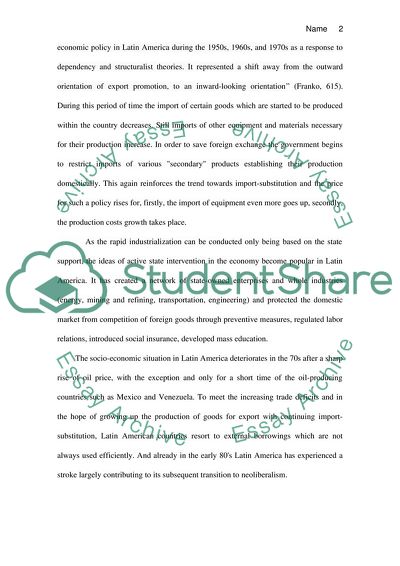Cite this document
(From Import-Substitution Industrialization to Neoliberalism in Latin Assignment, n.d.)
From Import-Substitution Industrialization to Neoliberalism in Latin Assignment. https://studentshare.org/politics/1865030-two-essays-of-geography-of-latin-america
From Import-Substitution Industrialization to Neoliberalism in Latin Assignment. https://studentshare.org/politics/1865030-two-essays-of-geography-of-latin-america
(From Import-Substitution Industrialization to Neoliberalism in Latin Assignment)
From Import-Substitution Industrialization to Neoliberalism in Latin Assignment. https://studentshare.org/politics/1865030-two-essays-of-geography-of-latin-america.
From Import-Substitution Industrialization to Neoliberalism in Latin Assignment. https://studentshare.org/politics/1865030-two-essays-of-geography-of-latin-america.
“From Import-Substitution Industrialization to Neoliberalism in Latin Assignment”. https://studentshare.org/politics/1865030-two-essays-of-geography-of-latin-america.


